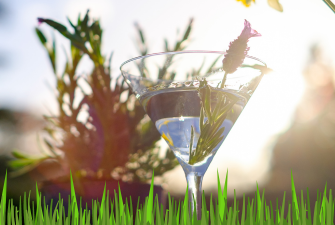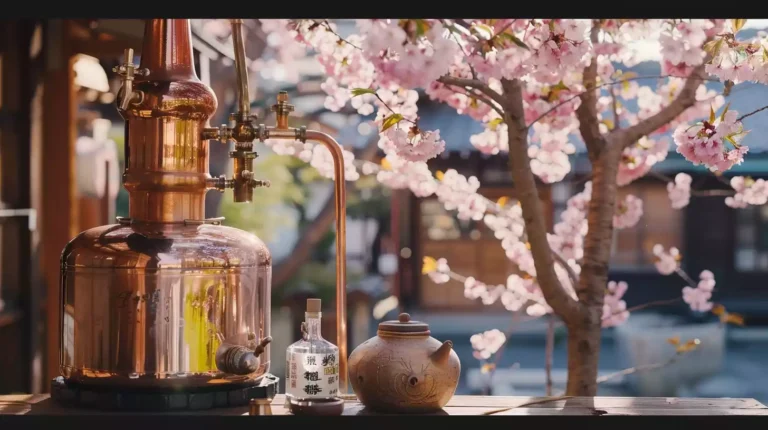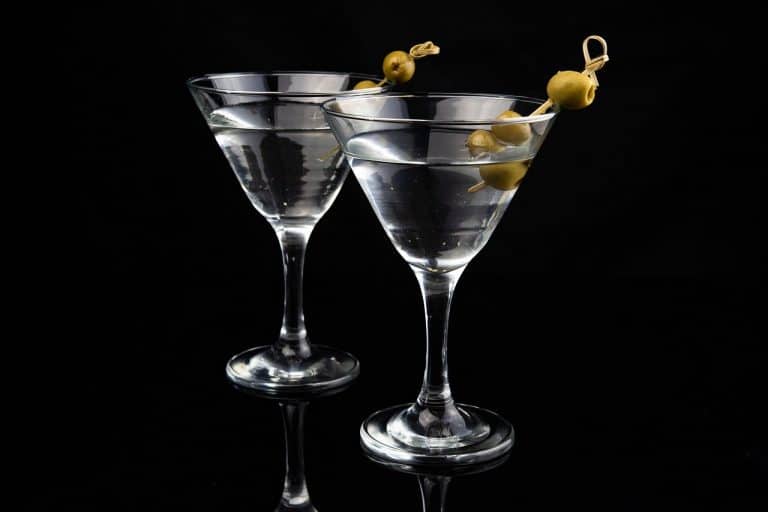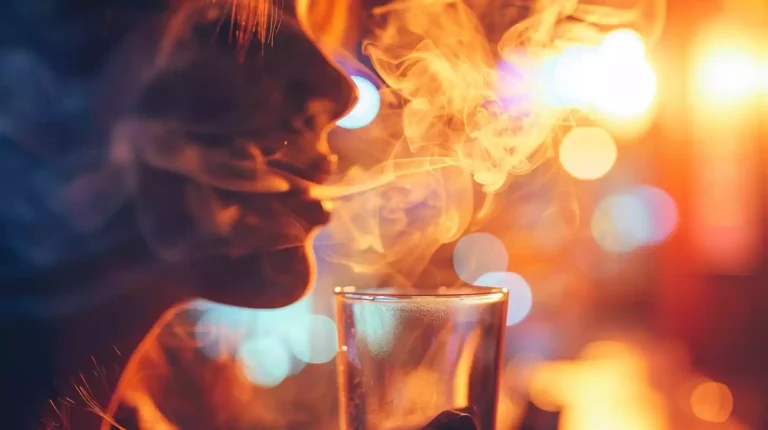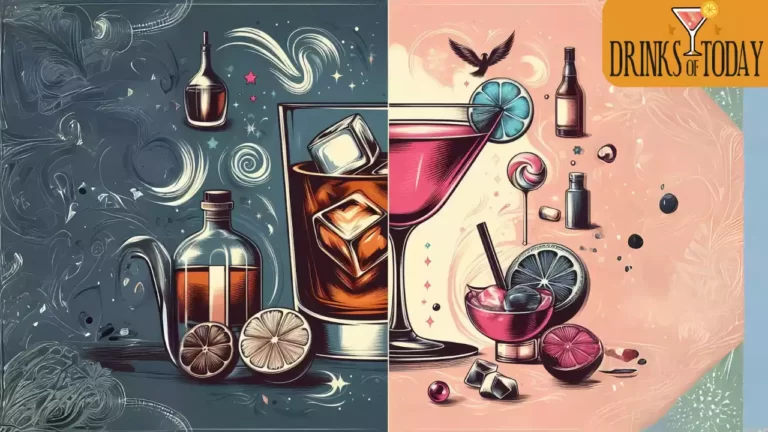Can Gin Be Stored In A Decanter?
When you imagine classic decanters, whether from movies or that you’ve seen in person, you’re likely imagining a classic crystal decanter filled with alcohol.
If you enjoy gin or gin-based cocktails, you may be wondering if it would be correct to store your gin in a decanter, rather than the bottle it came in.
Gin is best not stored in a decanter. Gin is comprised of botanicals that give the spirit its flavor. These botanicals are delicate and can more easily evaporate. Storing your gin in a decanter exposes it to the open air, causing the botanicals, and thus the flavor, to evaporate more rapidly.
In this article, we’ll look at the ingredient and taste profile of gin and what makes it not quite suitable to be served in a decanter.
Why Shouldn’t You Store Gin In A Decanter?
For those gin lovers who are well-versed in the distilling of gin, this may seem quite obvious. However, for a more casual gin fan, the idea that you shouldn’t store gin in a decanter may seem like a confusing concept.
You may be wondering: what exactly is the harm in putting this delicious liquid in a decanter? The answer has to do with the sensitive and subtle botanicals that make up gin.
First, you need to understand what gin is distilled with. Gin is produced using botanicals, most commonly juniper.
Some other common botanicals used when distilling gin are lemon, cardamom, lavender, coriander, rose, anise, and grapefruit.
Gin distillers have gotten wildly creative in their newest offerings, and there seems to be no limit as to how gin can be crafted using a variety of different botanical flavors.
While these flavors are somewhat subtle, they are the factor that separates gin from other types of distilled alcohol. The taste of the botanicals is somewhat subdued but they are easily noticed and beloved by the practiced gin drinker.
Because these botanical flavors are so essential to what makes gin, it is extra important to ensure that these flavors are not compromised in any way.
This includes any type of masking or evaporating of these flavors. (It is the same reason why gin tastes so good with tonic: The lowkey tonic flavor does not overpower the juniper taste and instead compliments its natural tastiness.)
The botanical notes in gin are at risk when being stored in a decanter simply because of how delicate and subtle they are. Decanters often do come with stoppers, but it can be difficult to ensure that the alcohol stored in the decanter is 100% safe from any open air that slips through.
Because of this, the botanical flavors in gin are very much at risk of evaporating while being stored in a decanter over a period of time.
What Exactely Is A Decanter?
Let’s backtrack a little to explain what exactly is a decanter and what exactly its uses are. After all, if you’ve never even seen a decanter, you may have no idea what any of this means at all!
Decanters are (primarily) glass or crystal vessels that are used to store and serve alcohol. The most common type of usage of decanters is wine and whiskey. However, to reiterate, a decanter can be used for serving and storing pretty much any type of liquor that your heart desires.
There is a somewhat common misconception that the only use for decanters is for aesthetic purposes. After all, they make their owner appear to be glamorous, important, and sophisticated (especially if there is a fully stocked accompanying bar cart, as well.)
The reason for this misconception is obvious: decanters are incredibly aesthetically pleasing. Many of them are beautiful and luxurious. There are also more experimental and whimsical styles of decanters, such as in the shape of a globe or a raging bull.
There is almost no denying that having a decanter in your home is impressive and stylistically superior.
However, decanters often have another purpose in their use. When storing wine, a decanter helps to aerate the wine that is poured into it. This helps to improve the flavor and make the wine a more smooth and less harsh tasting experience.
Transferring wine from a bottle into a decanter also helps to filter out any sediment that has accumulated in the wine bottle.
With whiskey and other liquors, however, a decanter does not have the same effect. These types of spirits are considered complete when initially bottled, so adding them to a decanter does not have any additional benefit to the taste or texture of the liquor.
For this category, a decanter is typically used for aesthetic purposes.
Further research should be done when deciding whether or not to store certain types of alcohol in a decanter. As mentioned, gin is a spirit that does not do well in a decanter as it will lead to quicker evaporation of the botanicals that make up the distinct gin flavors.
How Should You Store Gin?
If you want to ensure that your gin is not compromised or lessened in any way, it is best to store gin in the bottle it comes in.
The tops of these bottles are often much more secure (especially before opened for the first time) and offer a much greater chance of protection from the evaporation common in decanters.
It’s also recommended to store your opened (and unopened) bottles of gin in the freezer because the cold temperature will help to slow the growth of bacteria.
Experts recommend that a bottle of gin that has been opened should be consumed within one year. This further ensures that all of the gin’s flavor and textures remain intact and that your drink will taste just as intended.
Unopened bottles of gin can last up to several years, and sometimes even longer. That being said, try not to open a bottle of gin that you don’t think you’ll have the occasion to drink within the year.
As mentioned, gin is best when the botanicals are at their most crisp and fresh, and whatever actions can be taken to preserve this should absolutely be noted.
If you’re disappointed that you can’t get the sort of classic, old-timey feel of a decanter, that’s definitely understandable.
Bottles of alcohol as home decor can give off a college dorm room type of vibe that may not be desirable as an adult. Try fancying up your home bar setting with a vintage-looking bar cart, instead.
This will replace the idea of a vintage decanter, without sacrificing your gin’s flavor or ingredients. Or, seeing as gin is already a clear spirit, you could always just fill it up with water or a similarly colored spirit.
The thing with gin is that not only does storing it in a decanter harm the drink itself, but it also just doesn’t look that stunning compared to more colorful drinks.
Instead, try a dark red wine or a gorgeous whiskey. Not only do these look great in a decanter, but they also look much more aesthetically pleasing.
Final Thoughts
While decanters may be beneficial to liquor like wine, or fancy looking spirits like whiskey, the natural botanical flavors of gin necessitate that it be kept in a tightly sealed bottle while it is being stored in your home or on your bar cart.
Additionally, be mindful when buying your favorite bottle of gin. Try not to open a sealed bottle unless you’re sure you want to commit to drinking that bottle within a year.
There is nothing worse than a slightly off, bland-tasting gin. If you take good care of your favorite bottles of gin, it’s a guarantee that your taste buds and your party guests will thank you!

